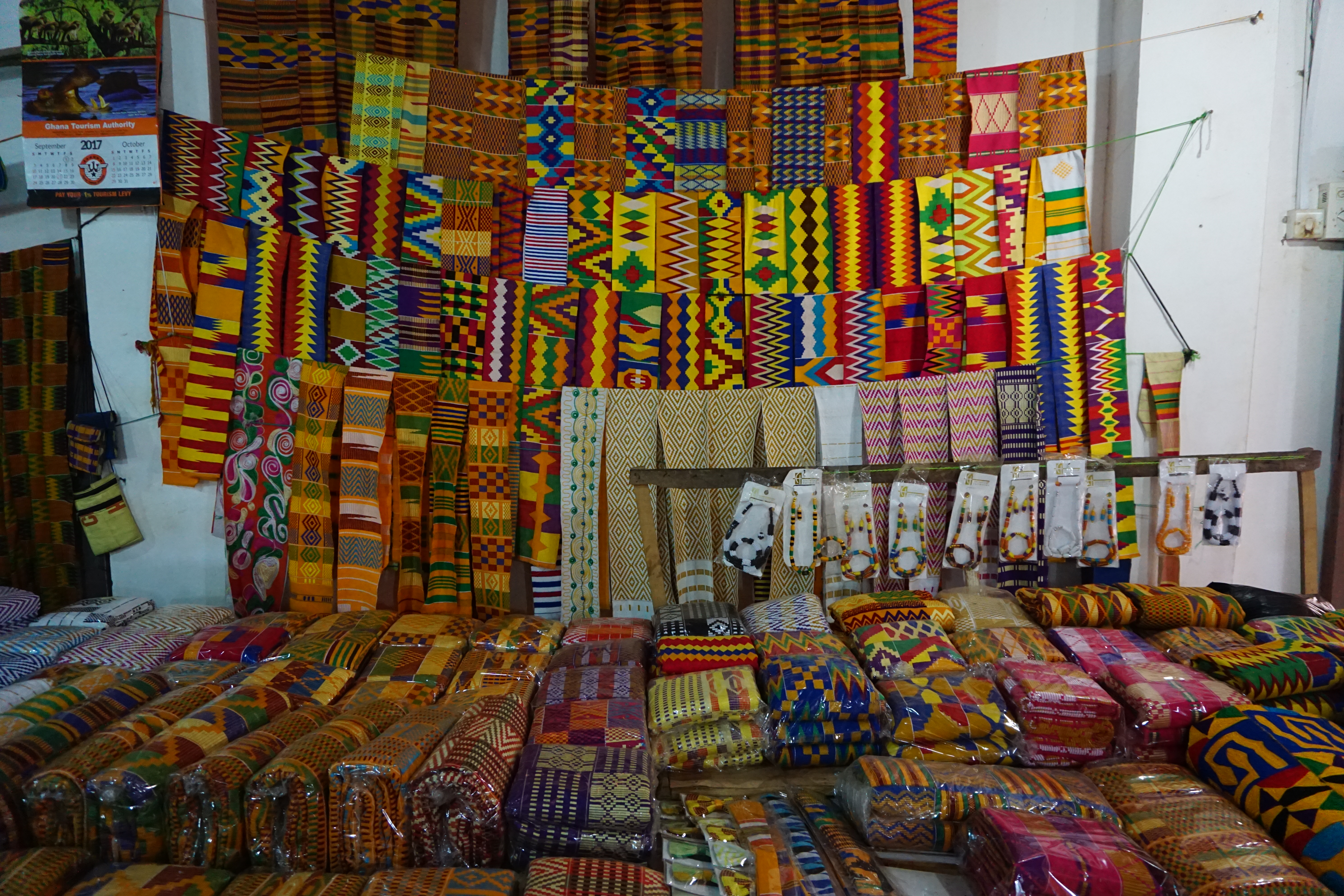On my third morning in Ghana, I awoke early for breakfast at my Accra hostel.
The Pink Hostel (Pink Hostel restaurant) cook prepared a stir fry veggies breakfast of cabbage, green peppers, tomatoes, and carrots for me.
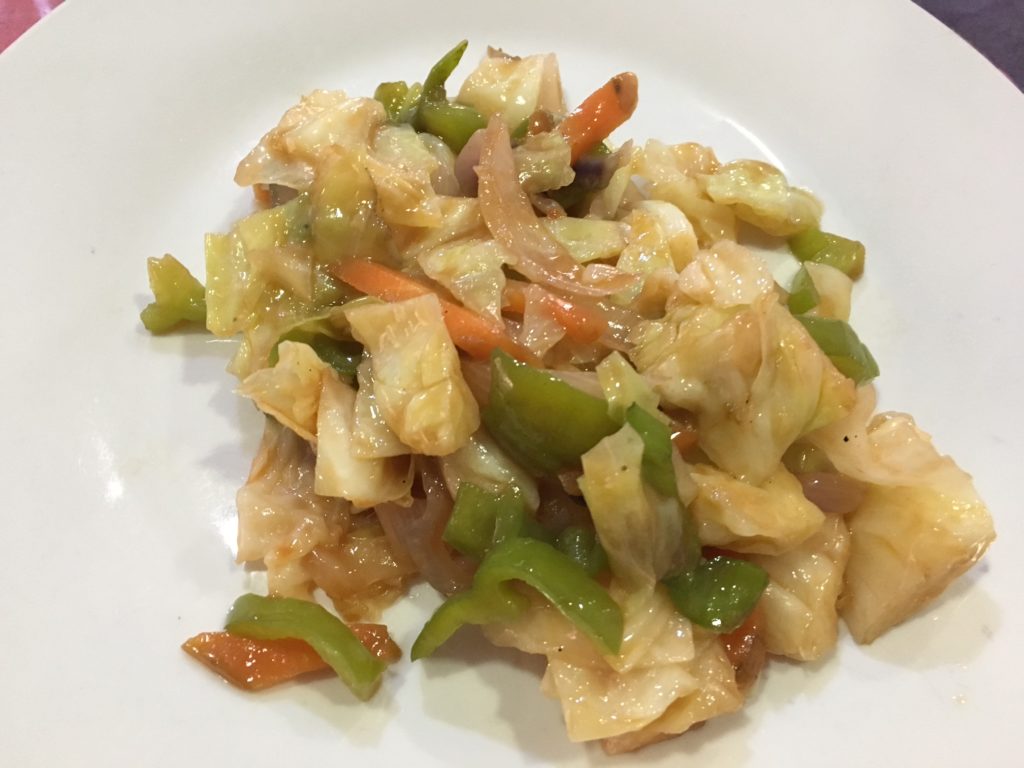
A couple of yam balls that I had purchased at the vegetarian/vegan-friendly Assase Pa Restaurant (Assase Pa) during the previous day, had completed my tasty meal.
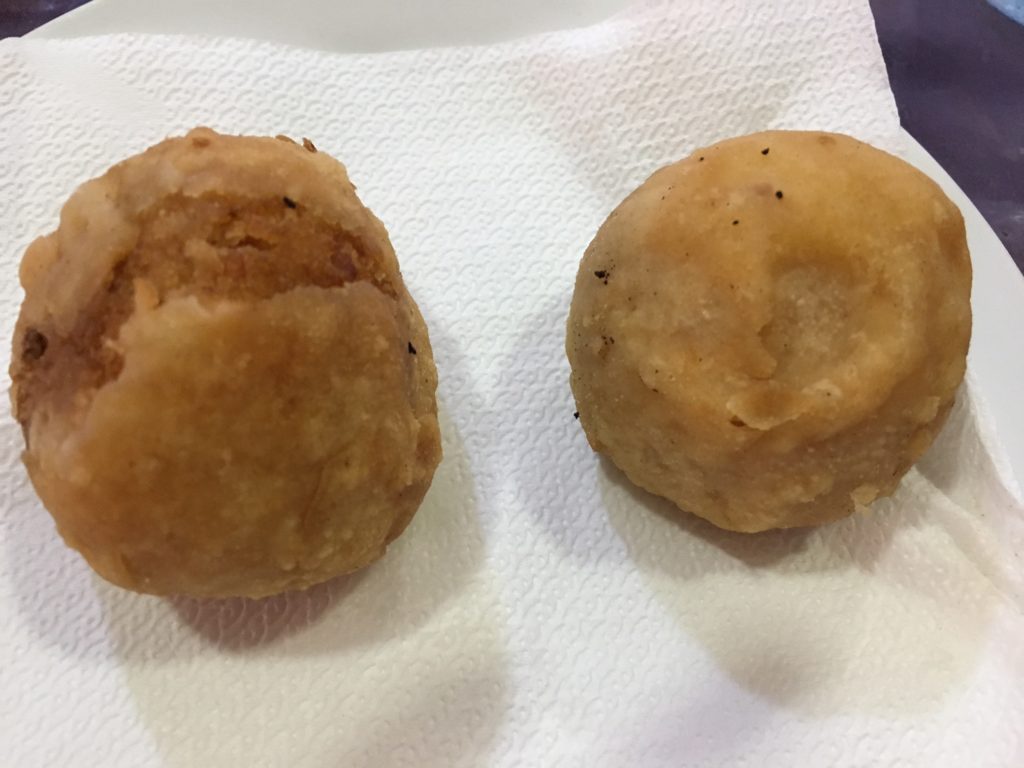
My tour guide arrived in his van at 9am and we left Accra for a three and a half hour excursion to the Ashanti region of central Ghana. Along the journey, we passed through many poor small villages where locals were selling their wares and food products. I was in awe of the local women and children carrying heavy goods upon their heads. Such impressive strength and balance!
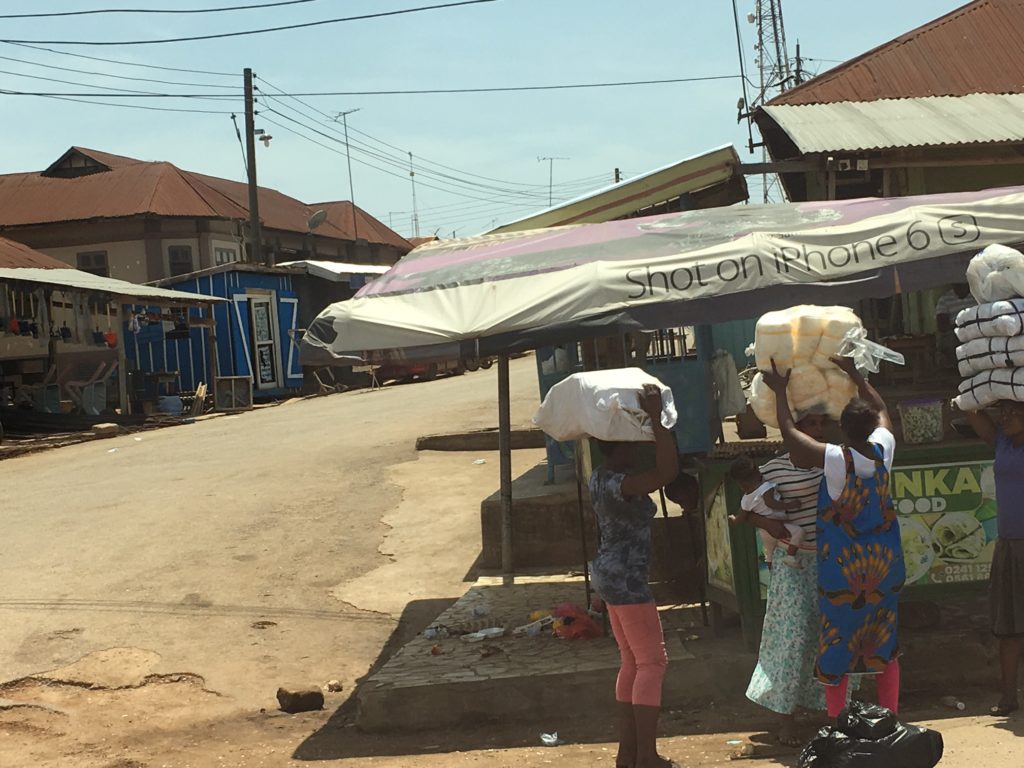
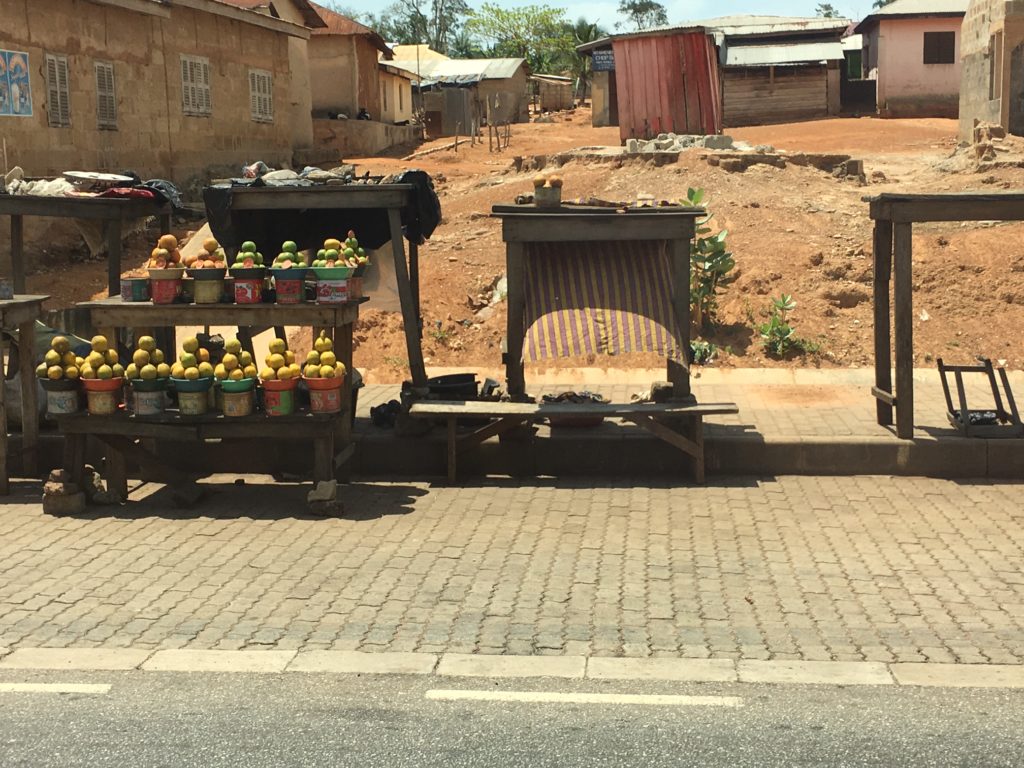
We made our way towards the Ashanti Craft Villages. Three of the villages were on our radar for the day:Bonwire, Ntonso, and Ahwiaa. Our first stop was at the village of Bonwire, where the famous Kente cloth is handmade on looms. This process has been passed down through many generations. I had the opportunity to watch the weavers while they were constructing Kente cloth in various patterns and brilliant colors.
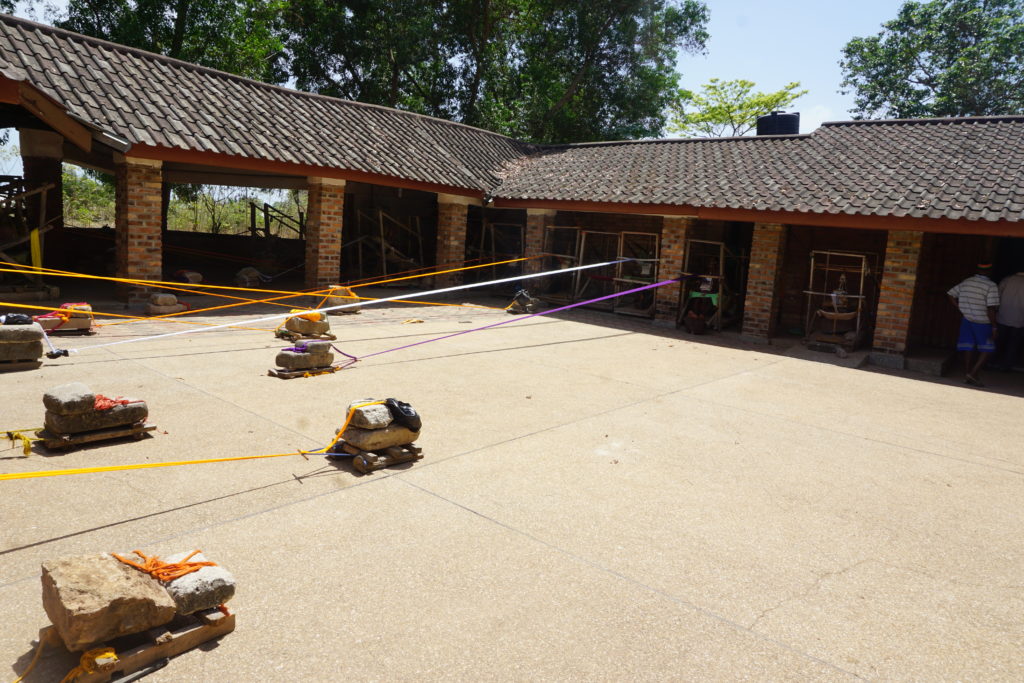
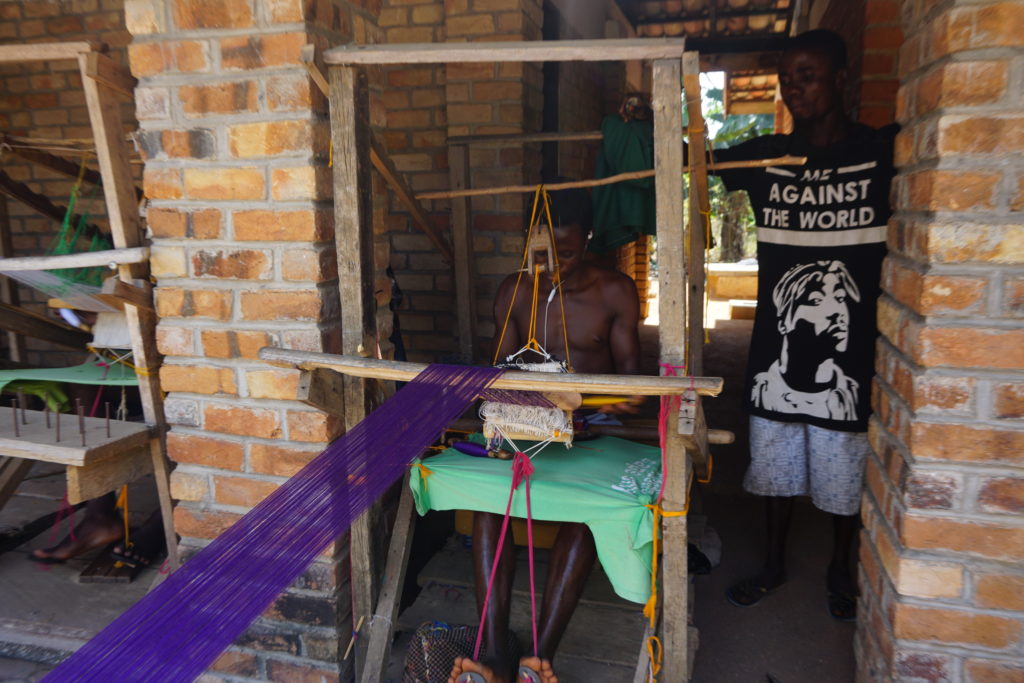
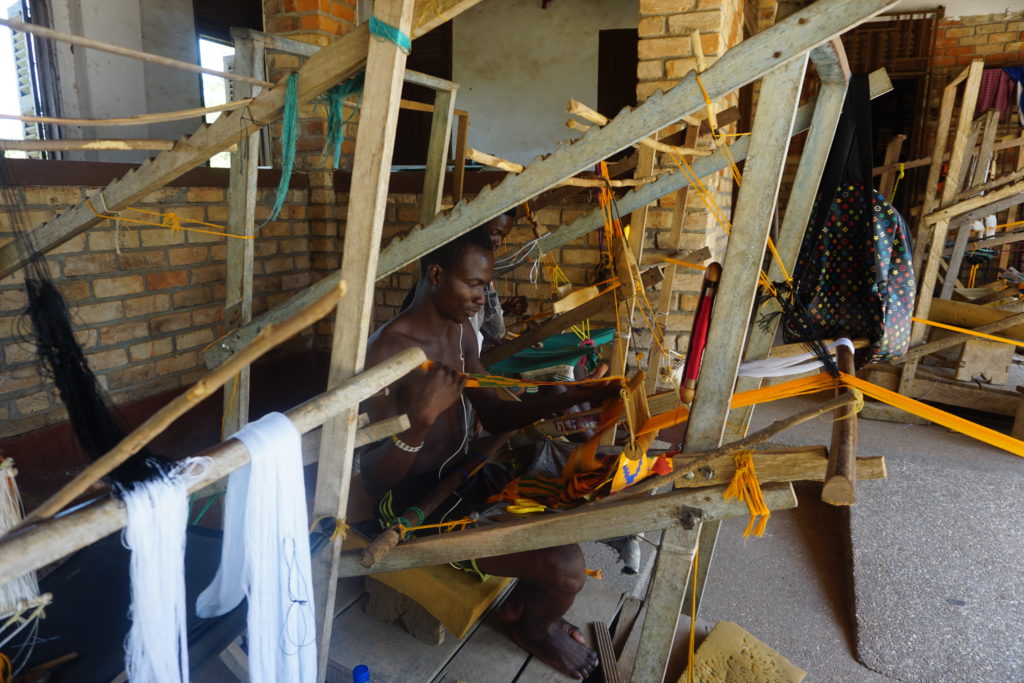
A guide within the Bonwire gift shop provided a quick demo on the weaving process, as well. He displayed several pieces of exquisite kente cloth varieties for me to examine.
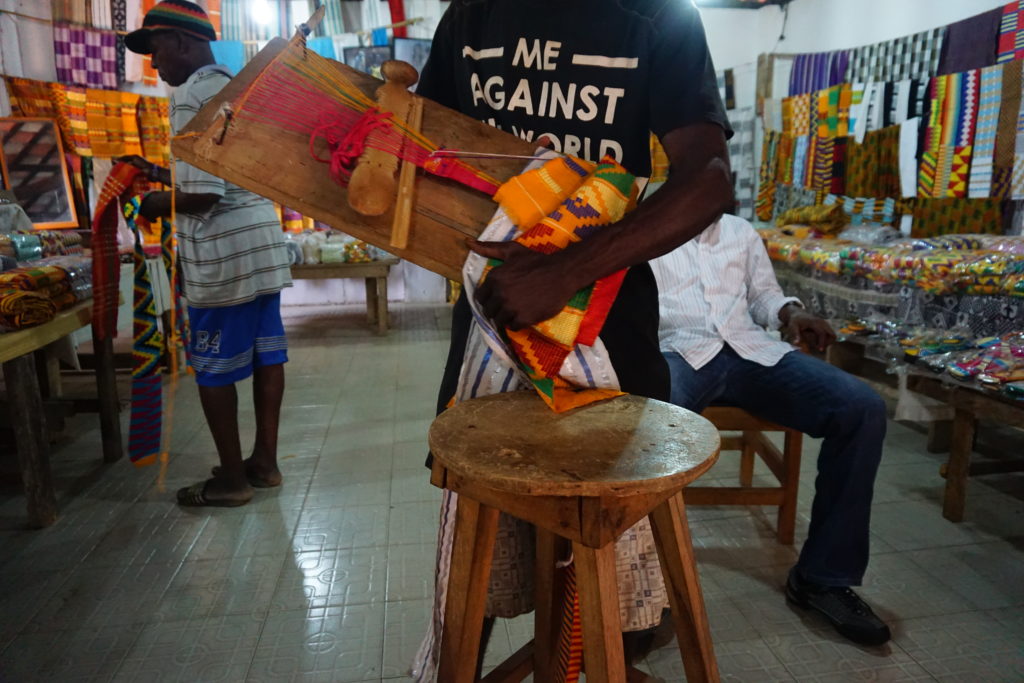
The gift shop offered a wide variety of kente cloth products including scarves, handbags, sandals, jewelry, and tablecloths. My purchases included a colorful scarf, sandals, and jewelry – each with their own unique kente design.
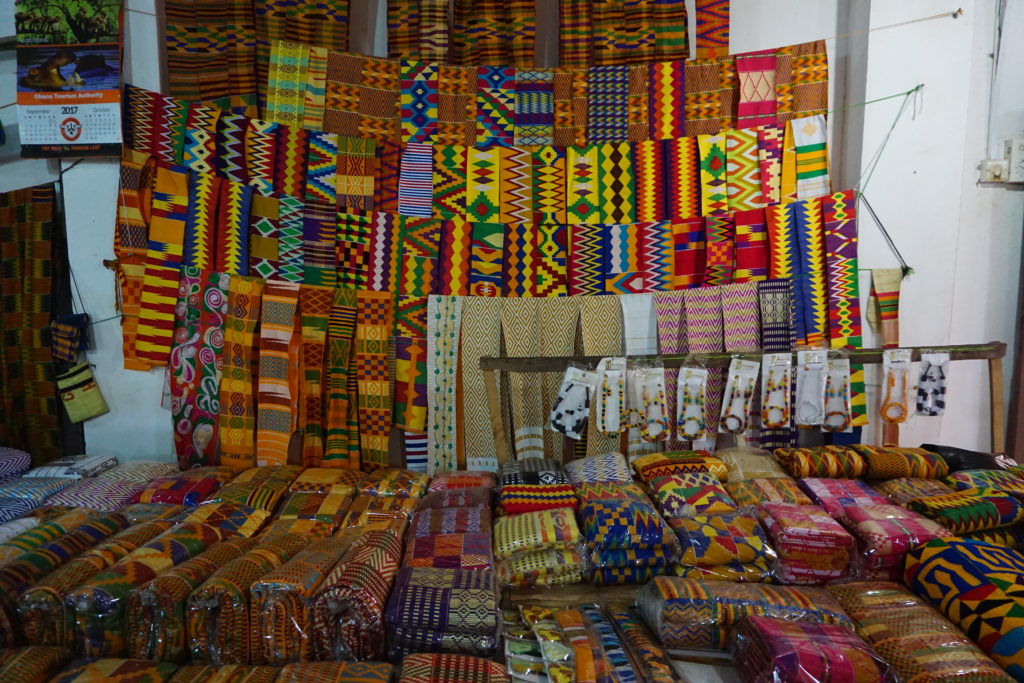
Next on my itinerary was Ntonso village. Adinkra textiles are produced here. These hand-dyed fabrics were created originally for royalty to wear at various ceremonies. Eventually, people started using these dyed fabrics to express their feelings. Artisans dip a hand stamp into a bucket of dye, and then press the stamp onto fabric. The metal stamps take the form of various symbols that represent love, strength, and other significant cultural values of the local Akan tribe. This craft village is family-run. The late Ashanti chief’s son is an artisan and guide for these tours.
The process starts by scraping bark off of a tree limb and placing it into a bucket.
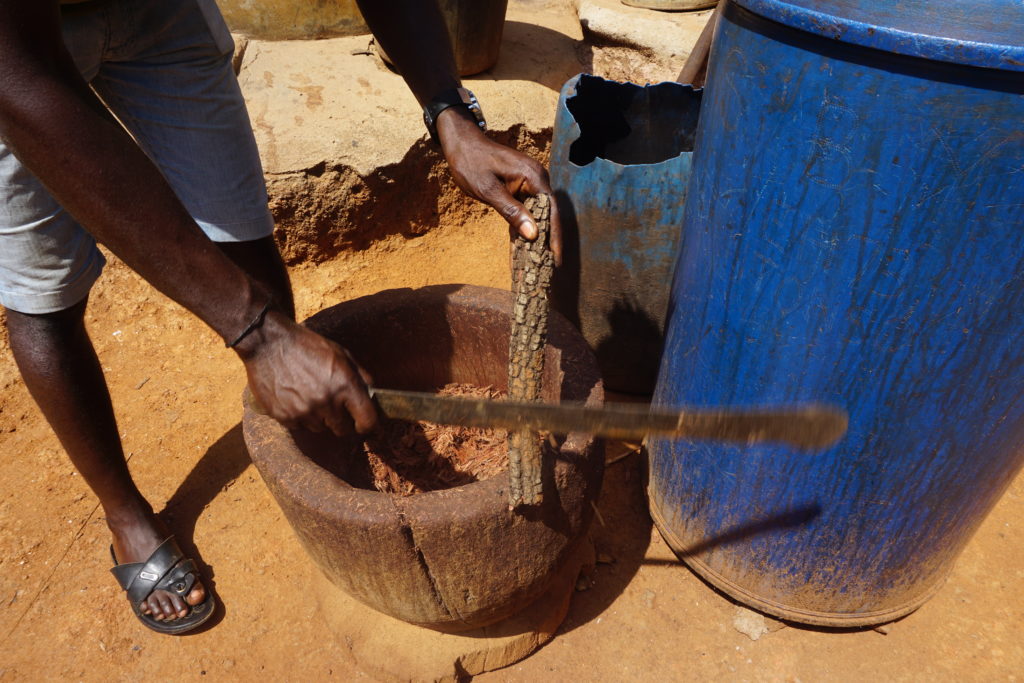
The bark shavings are softened in water.
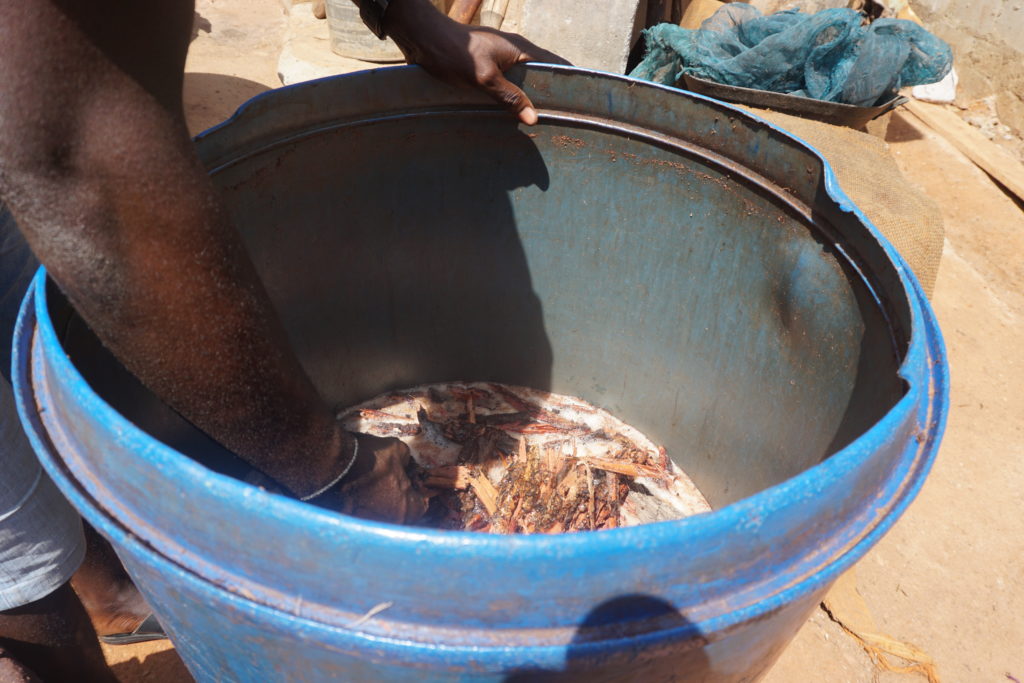
A long stick is then used to pound the bark.
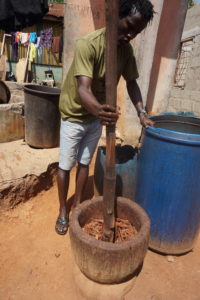
Bark is placed into an outdoor oven to bake for many hours.
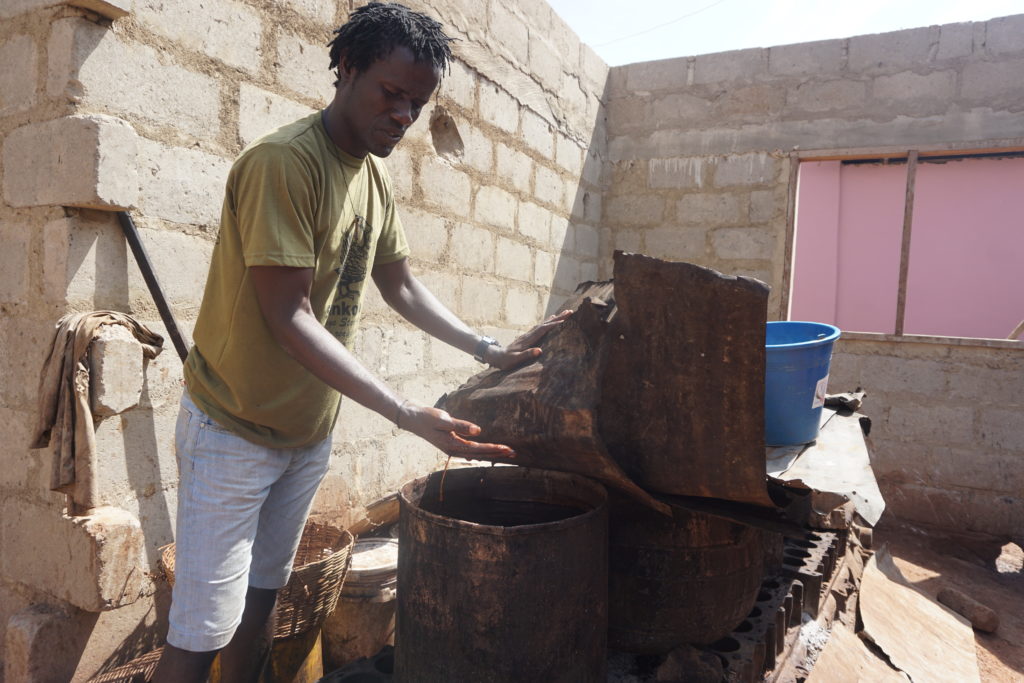
After it is heated over flames, it produces a thick dye.
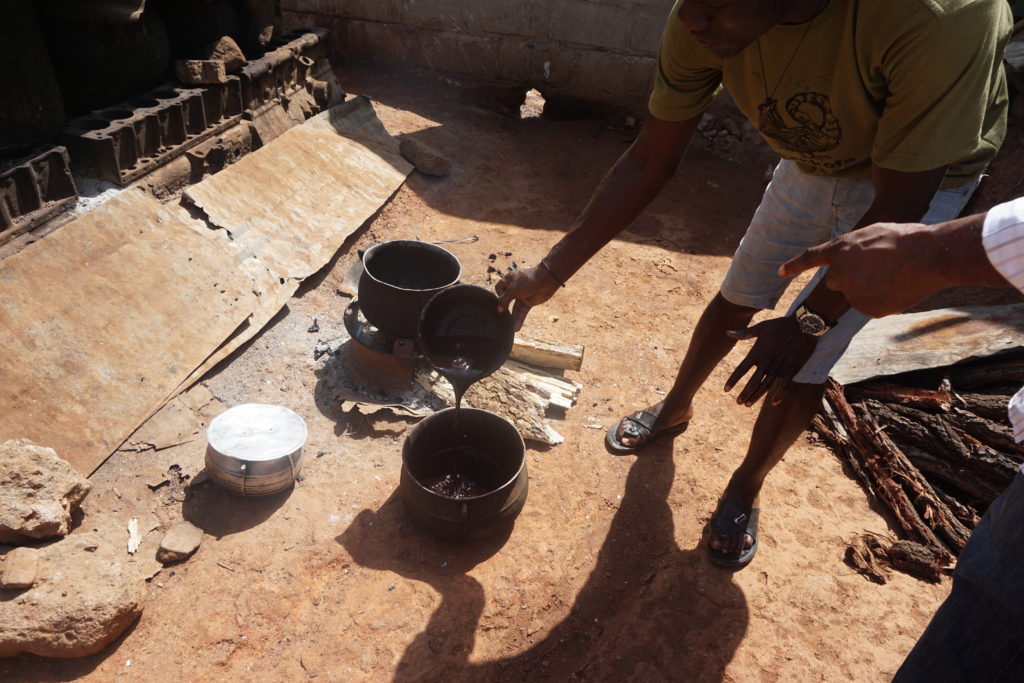
The artisan places the dye in a bucket and dips a metal hand stamp into it.
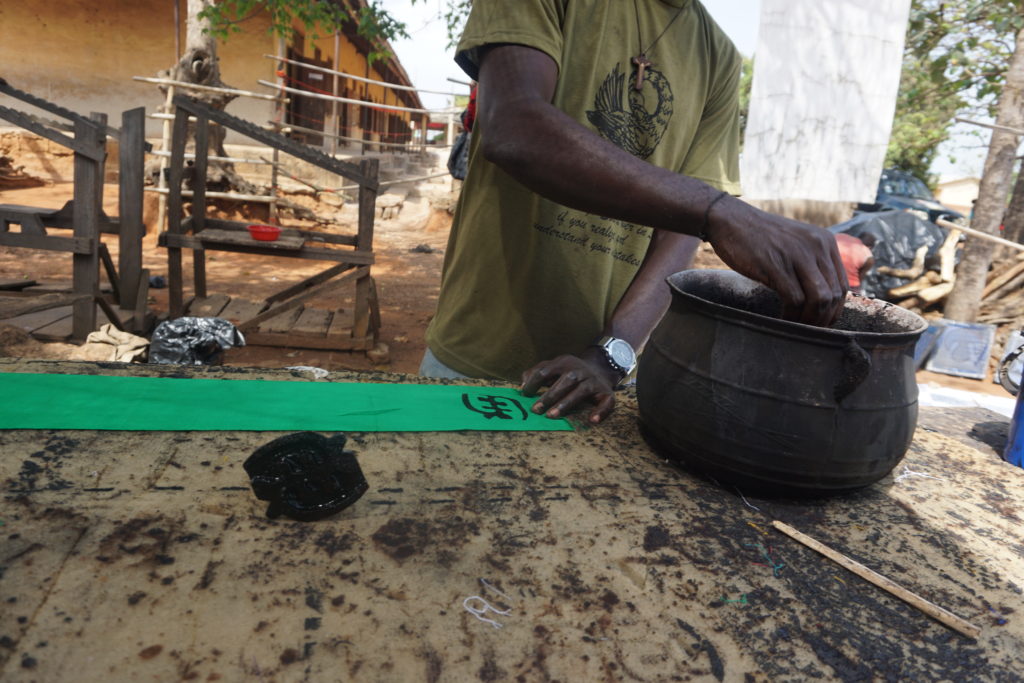
He then presses the stamp onto fabric to make an imprint. The fabric piece is placed out in the sun to dry.
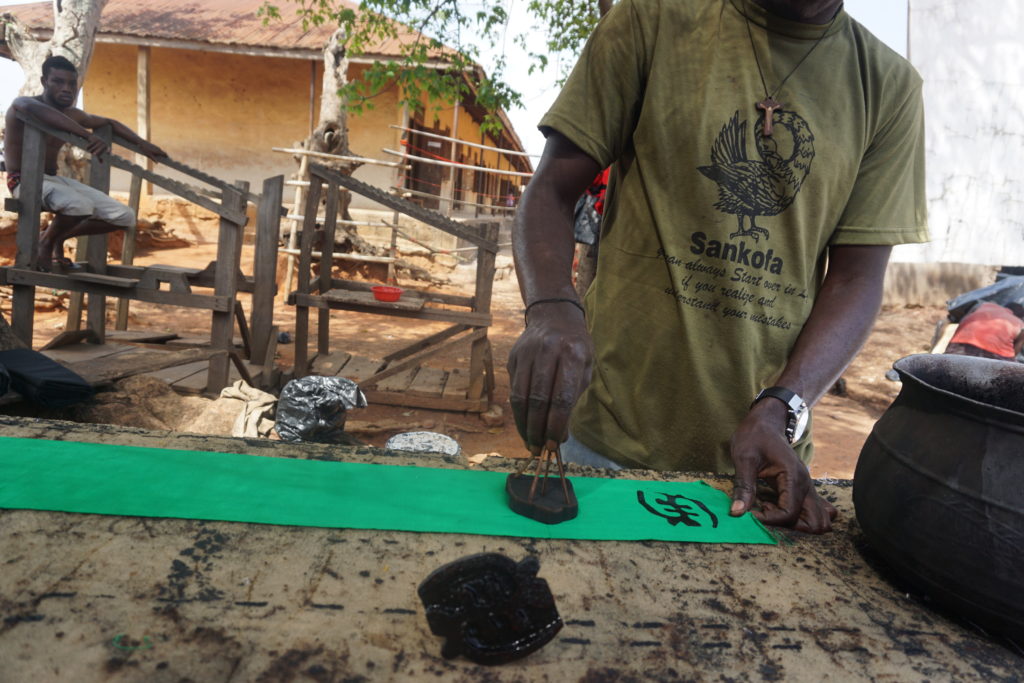
I made an attempt at the stamping process, as well. My chosen symbol represented “love”. The artisan allowed me to keep my Adinkra cloth as a gift.
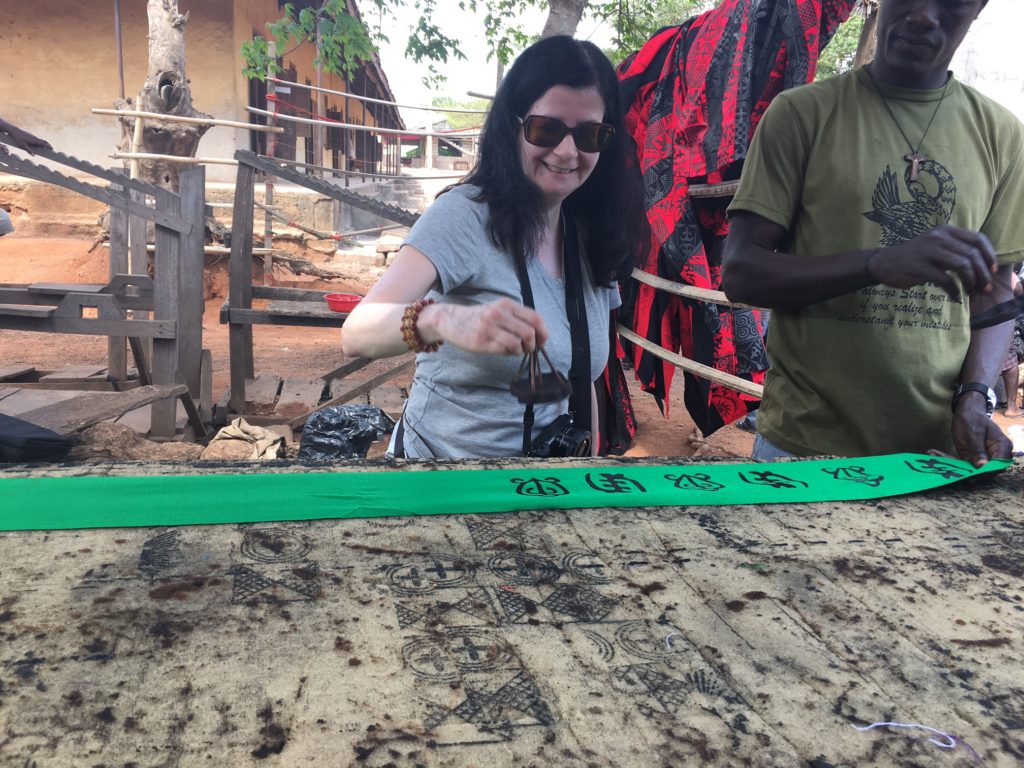
The adjacent building contained a wide variety of kente cloth fabric, consisting of various patterns. Visitors may select a pattern to have custom-made into a dress. I chose a yellow cloth with a pattern of traditional red symbols. The seamstress (who is the sister of the artisan) took my measurements and promised that my dress would be ready the following day. Prices run anywhere from $60US to over $100US, depending on the number of colors in the pattern and whether or not it is double or triple weaved.
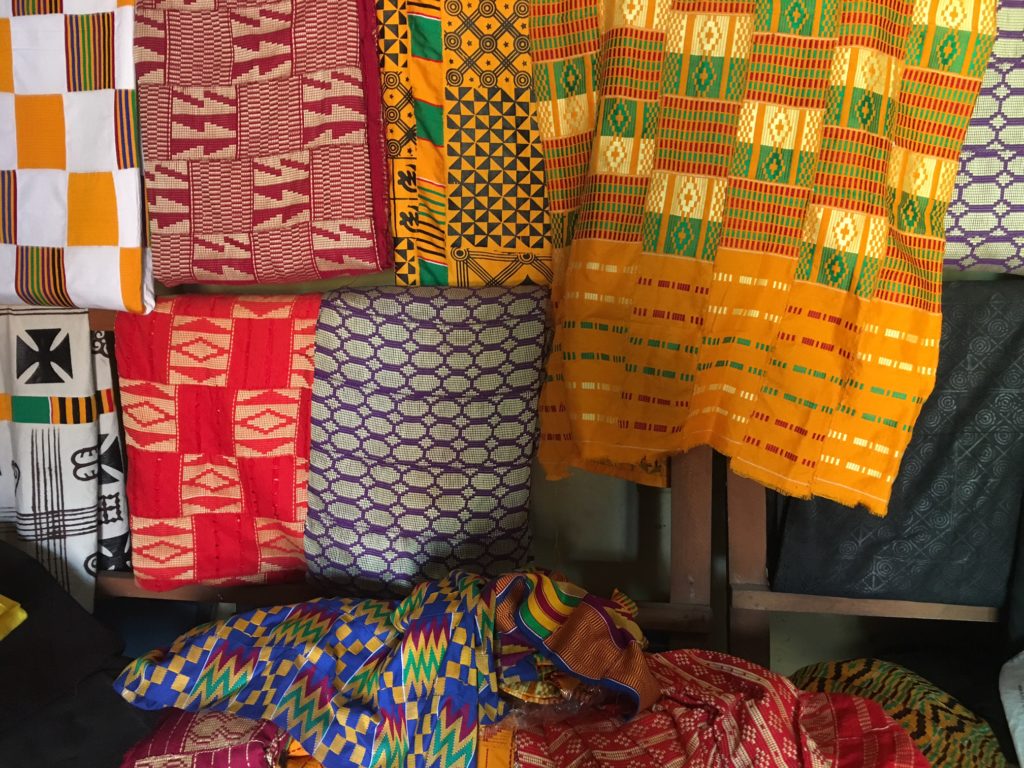
After my tour, we proceeded onward to our next destination. Due to the day’s lenghty commute, there was no time to stop for a complete lunch meal. I just snacked on vegan treats in my backpack, including dried cranberries and vegan nutrition bars. As we drove through the local villages, I noticed the many small wooden shacks that provided both home and livelihood for the local Ashanti.
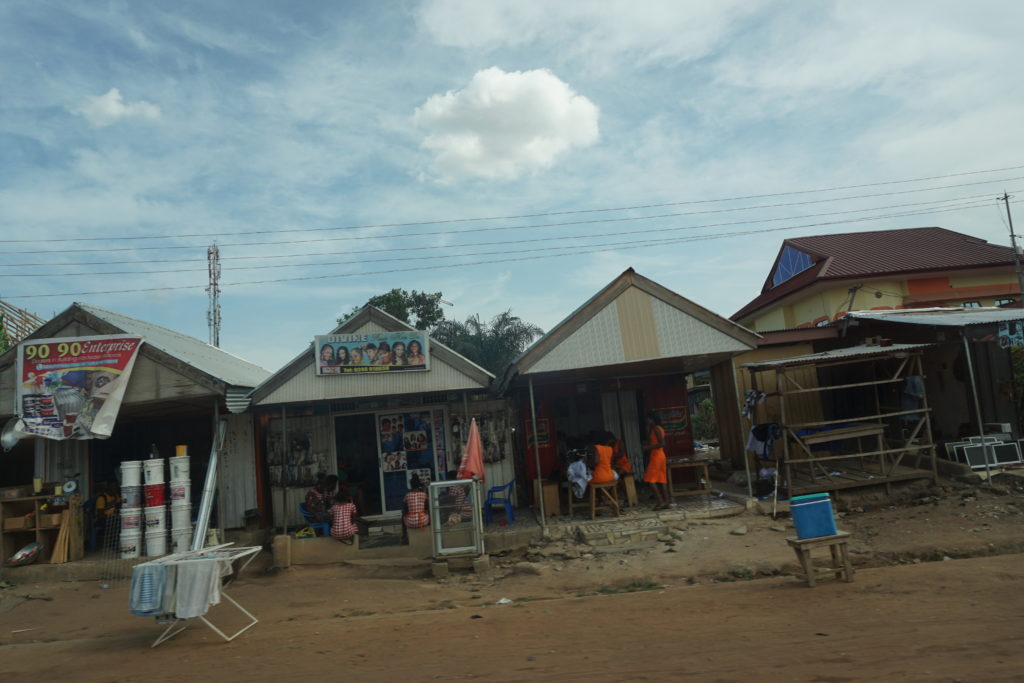
Dozens upon dozens of signs referring to Christian conferences and prayer services were seen along our route. Ghana is definitely the most Christian country in the world, as references to church and prayer are found everywhere.

Our last stop on the day’s schedule was the woodcarving village of Ahwiaa. Its craftsmen create royal stools, walking sticks, and fertility dolls from carved wood. I watched as these craftsmen carved the wood and designed royal stools.
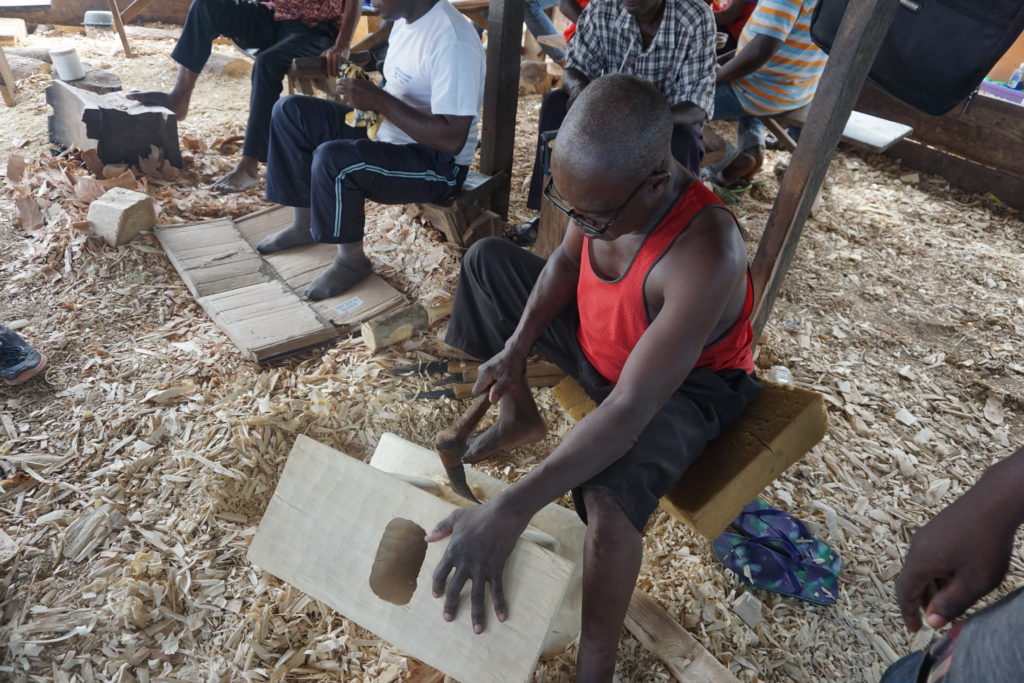
The final products are the beautifully carved stools with intricate patterns.
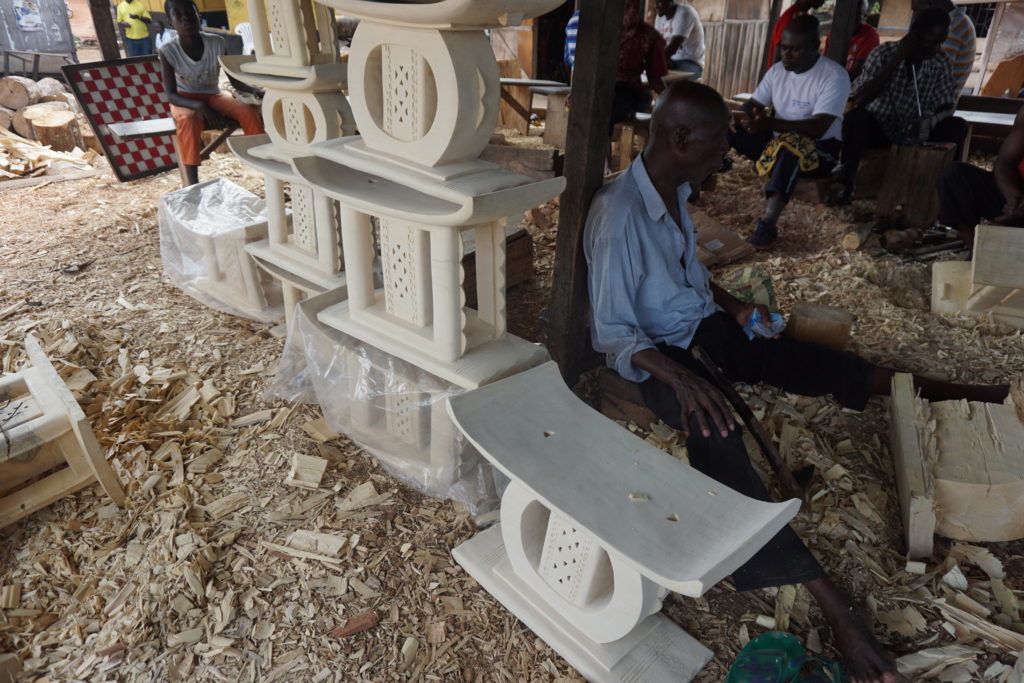
Adjacent to the craftsmen, resides a shop where visitors may purchase finely carved wooden goods. I purchased a well-crafted statue of a man playing the drums and a beautifully carved Ghanaian tribal mask.
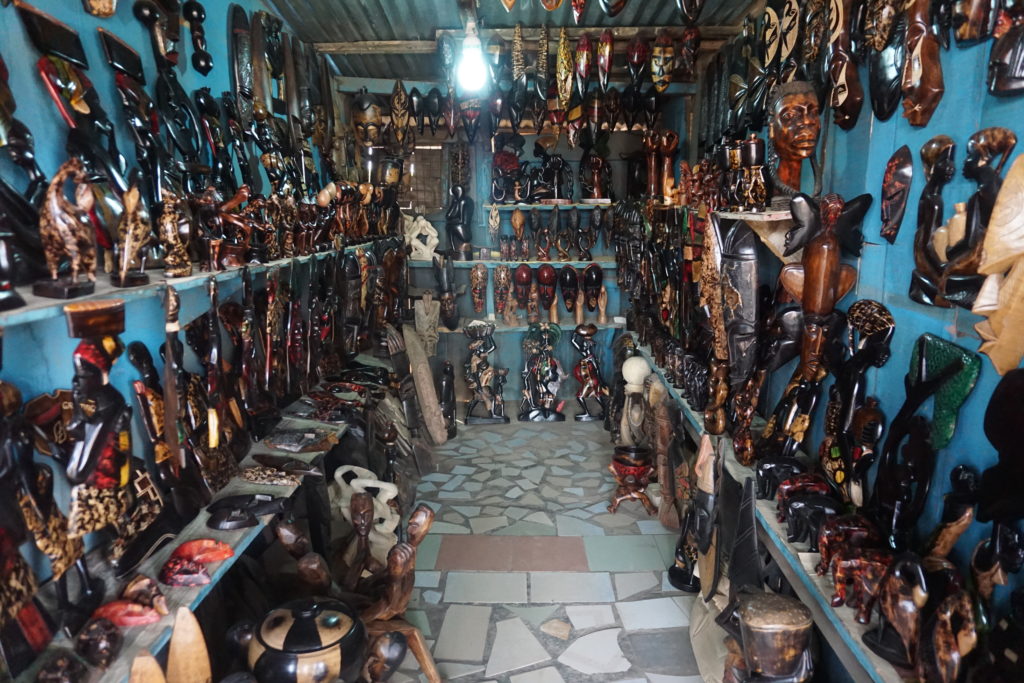
As we headed toward our hotel in the city of Kumasi, I noticed the many churches along the way. From Catholic to Protestant to Orthodox and other denominations, churches were everywhere. Some occupied really small buildings, while others were massive in size.
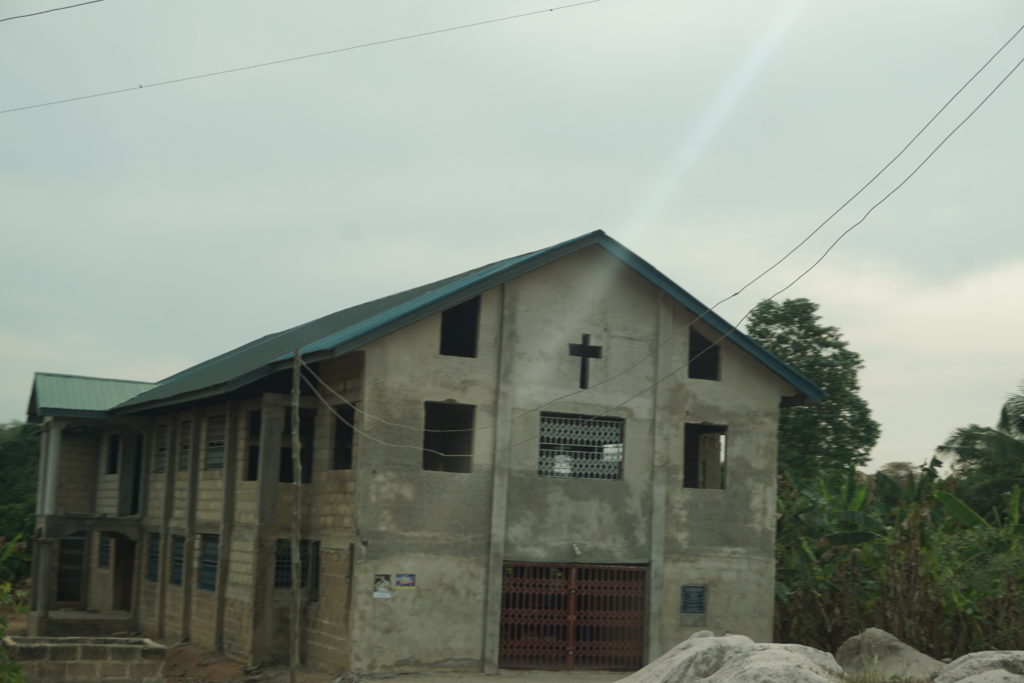
My tour guide pointed out a few statues of relevance as we made our way through the villages. A statue of Yaa Ashantwaa stands at the roundabout, on the road that goes through the village of Ejisu. She is recognized as the first female warrior of the Ashanti Kingdom. She was queen mother of Ejisu. During the year 1900, she led the Ashanti’s “War of the Golden Stool” against British imperialism.
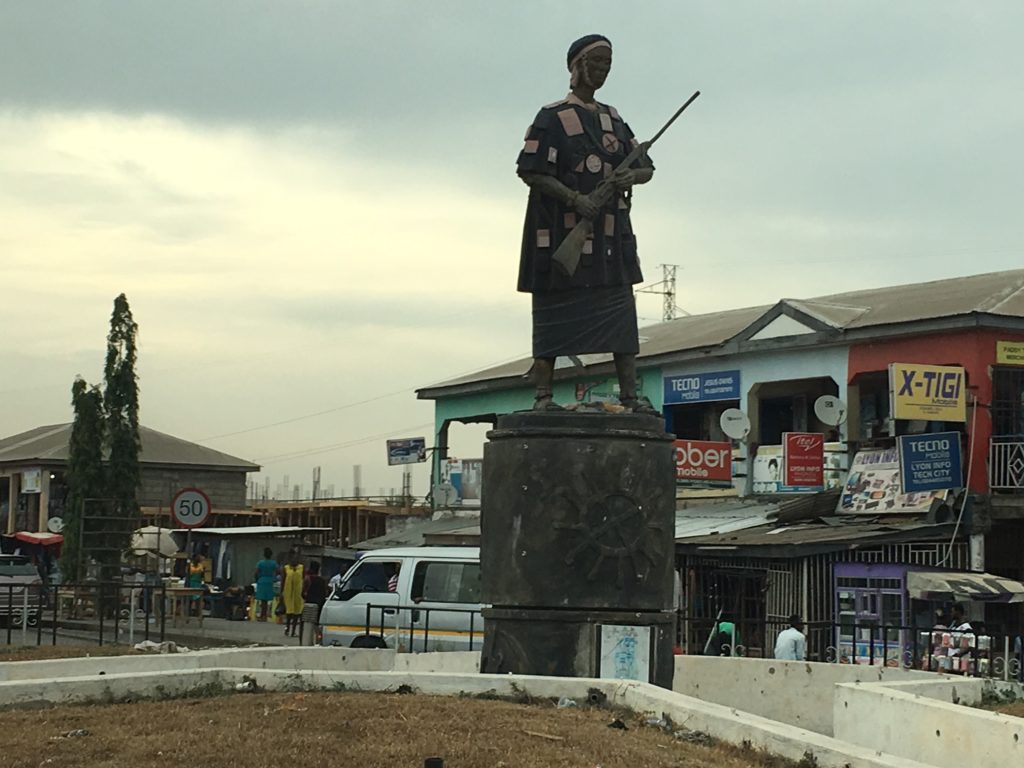
We arrived at my accommodations in Kumasi by nightfall. The Noda Hotel restaurant (Noda Hotel restaurant) offered to prepare a vegan dinner meal for me. I opted for a delicious stir fry veggie dish consisting of peas, green peppers, carrots, lettuce, tomatoes, onions, and mushrooms; with a side of rice.
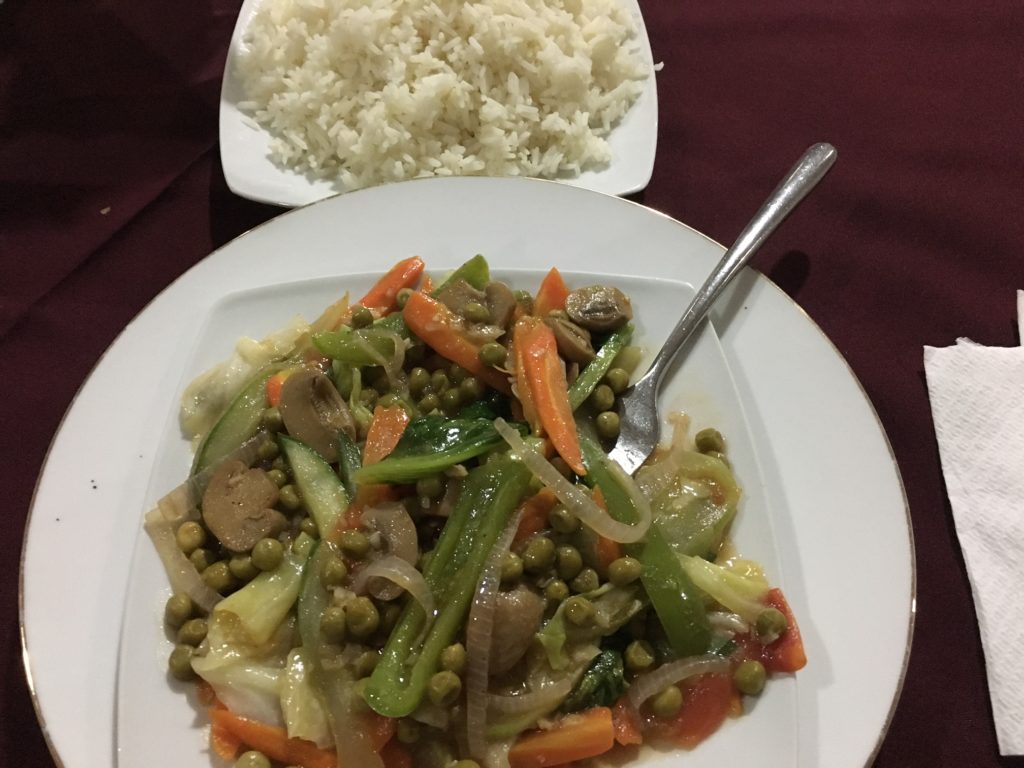
My day tour of the Ashanti Craft Villages was magnificent. I looked forward to the next day’s itinerary of more sights in the Ashanti region.
